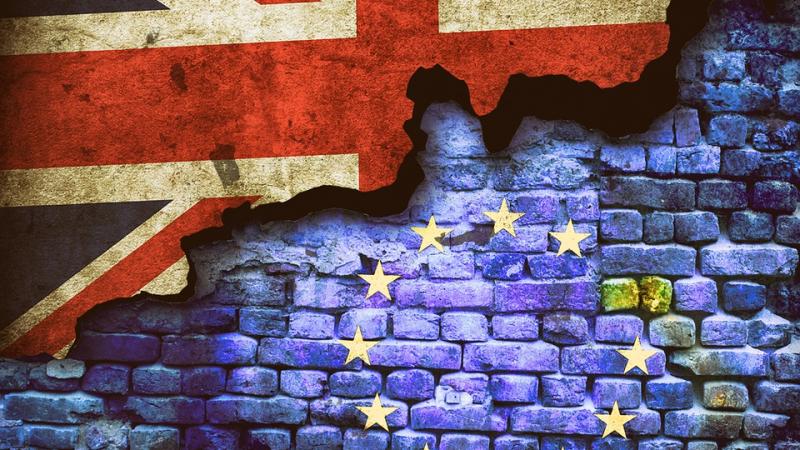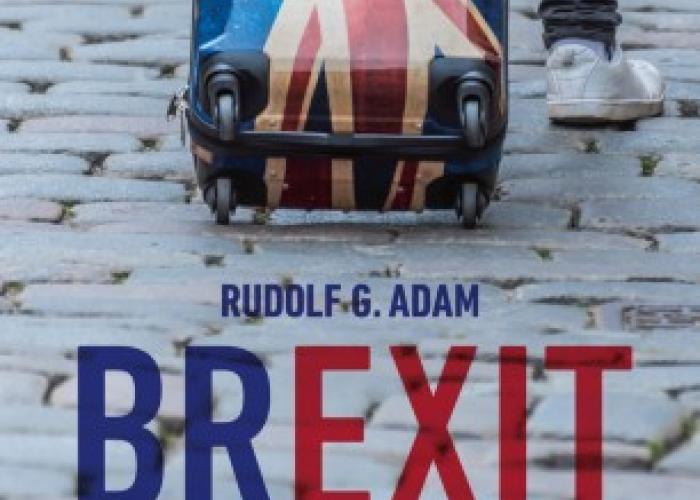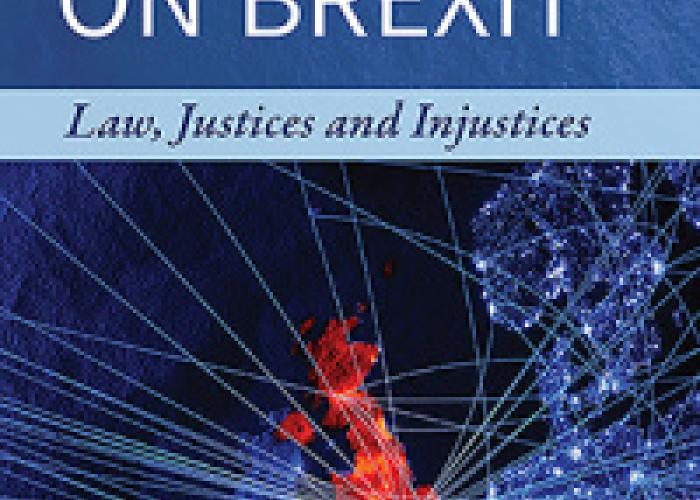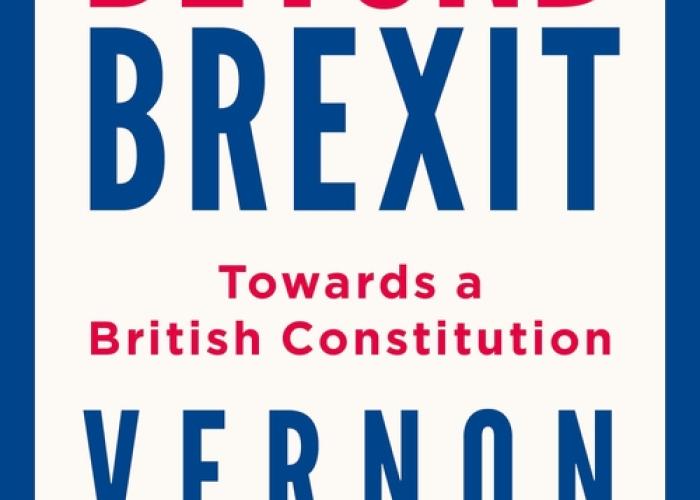Brexit is the withdrawal of the United Kingdom (UK) from the European Union (EU). During the Brexit process, political leaders, thinktanks, scholars, business representatives and interested citizens in the UK and on the European continent have been critically following the campaign for the referendum. On the European mainland various media has pointed out that leaving the European Union would be terrible for the (economic) stability and future of the EU. The actual date of exit (withdrawal deadline) has been changed three times: from 29 March 2019 into 12 april 2019 into 31 October 2019 into 31 January 2020. After 47 years, the United Kingdom's membership of the European Union ended. Prime minister Boris Johnson 'got the Brexit done' in the end.
Facing pressure from Eurosceptic groups, David Cameron's pro-Europe government held a referendum in 2016 on whether to leave the EU: 51.9% voted in favour of leaving the EU and 48.1 % voted in favour of remaining in the EU. (EU referendum: the result in maps and charts, 24 June 2016, BBC News). The outcome resulted in Cameron's resignation.
In European law a provision is codified for Member States to withdraw from the European Union: Article 50 of the Treaty on the European Union. Paragraph 1 of art. 50 clearly states that the decision of withdrawal from the European Union is a sole prerogative of the Member State. It therefore, needs to be in accordance with its own constitutional requirements. After a decision is made by the British government it need to send a notification to the European Council. The leaders of the 27 other Member States of the European Union convene to discuss the notification and to draft a 'Withdrawal Treaty'. This particular treaty is concluded on behalf of the Union by the Council, acting by a qualified majority, after obtaining consent of the European Parliament. It is confirmed by the 27 remaining heads of state of the European Union.
May's deal: the Withdrawal Agreement (18 November 2018)
Theresa May's deal aimed, broadly, to allow the UK to formally leave immediately, while abiding by EU rules for a further 21-month "implementation period". This should have given the UK and EU breathing space while they hammer out the details of a future relationship. However, on 29 March 2019 -- the first set exit date of Brexit -- the British Parliament (House of Commons) showed many 'NO' 's to the Withdrawal Agreement, even to options discussed and proposed within the Parliament. After another vote against the Withdrawal Agreement, Theresa May resigned as Prime Minister.
Johnson's revised Brexit deal (17 October 2019)
The new protocol replaces the controversial Irish backstop plan in Theresa May's deal. Much of the rest of that deal will remain: The whole of the UK will leave the EU customs union. This means the UK will be able to strike trade deals with other countries in the future. There will be a legal customs border between Northern Ireland and the Republic of Ireland (which stays in the EU). But in practice the customs border will be between Great Britain and the island of Ireland, with goods being checked at "points of entry" in Northern Ireland. Where something is "at risk" of being transported into the Republic of Ireland (which is part of the EU customs union), duty tax will be paid.
The UK general election on 12 December 2019 turned out to be a historic victory for the Conservative Party. Prime Minister Boris Johnson said that the results gave his government “a powerful new mandate to get Brexit done.” Boris Johnson wanted the UK to leave the European Union (EU) with the revised deal he agreed.
In 2020, planned negotiating rounds on the UK’s future relationship with the EU had been abandoned at first as a result of the coronavirus pandemic, with Boris Johnson’s government still to table a comprehensive legal text for both sides to work on.
Following the British exit on 31 January 2020 the UK entered a Transition Period. Trade, travel and freedom of movement remain largely unchanged during this period. The transition period ended on 31 December 2020. During the transition period, David Frost (UK) and Michel Barnier (EU) continued to negotiate a permanent trade agreement. On 24 December 2020 both parties announced that a deal had been reached:
United Kingdom and European Union agree Brexit trade deal (24 December 2020)
UK Prime Minister Boris Johson has emphasized on Britain to take back control. In a speech to parliament ahead of the vote on 30 December 2020, Boris Johnson will hail the deal sealed on Christmas Eve, arguing that it represents “how Britain can be at once European and sovereign”, as well as praising negotiators for securing it at “astonishing speed” in the “teeth of a pandemic”.
The European Union's most important negotiating strategy is to create a 'level playing field' in order to control damage (unfair competition) to the EU internal market and EU-citizens as much as possible.
A few key points of the deal:
- No taxes on goods (tariffs) or limits on the amount that can be traded (quotas) between the UK and the EU from 1 January 2021.
- New checks will be introduced at borders, such as (health) safety checks and customs declarations.
- Both sides have agreed that 25% of EU boats' fishing rights in UK waters will be transferred to the UK fishing fleet, over a period of five-and-a-half years. Starting from 30 June 2026, the UK and the EU will hold regular talks on fishing access and British access to EU gas and electricity.
- UK nationals will need a visa for stays of longer than 90 days in the EU in a 180-day period.
- UK will no longer participate in the Erasmus exchange programme, an EU scheme that helps students study in other countries.
- The UK will not be a member of the EU's law enforcement agency, Europol, but it will have a presence at its headquarters.
- The UK is no longer obliged to comply with EU standards of data protection, but data will continue to be exchanged in the same way for at least four months as long as the UK doesn't change its data protection rules.
- There will be no role in the UK for the European Court of Justice (ECJ); disputes that cannot be resolved between the UK and the EU will be referred to an independent tribunal instead.
Although a 'No deal' would have been disastrous for both parties, the damage for the UK would have been more painful because the UK is a bigger netto-exporter to the EU than the EU is to the UK. No need to say that even this deal is still a loss to both: loss of economic development, loss of freedom to travel, loss of (barrier-)free trade.
Books
- Ahmed, T. and Fahey, E. (eds.), On Brexit: Law, Justices and Injustices, London, Edward Elgar Publishing, 2019.
- Adam, R.G., Brexit: Causes and Consequences, Cham, Springer, 2020.
- Alexander, K., Barnard, C., Ferran, E., Lang, A. and Moloney N., Brexit and financial services: law and policy, Oxford [etc.], Hart, 2018.
- Armour, J. and Eidenmüller, H., Negotiating Brexit, München, C.H. Beck, 2017.
- Armstrong, K.A., Brexit time: leaving the EU - why, how and when? Cambridge, Cambridge University Press, 2017.
- Baker, D. and Schnapper, P., Britain and the crisis of the European Union, Houndmills, Basingstoke, Hampshire, Palgrave Macmillan, 2015.
- Bahurel, C., Bernard, E. et Ho-Dac, M. (eds.), Le Brexit: enjeux régionaux, nationaux et internationaux, Bruxelles, Bruylant, 2017.
- Blick, A.,Stretching the constitution: the Brexit shock in historic perspective, Oxford, Hart Publishing, 2019.
- Birkinshaw, P.J. and A. Biondi, (eds.), Britain Alone!: The Implications and Consequences of United Kingdom Exit from the EU, Alphen aan den Rijn, Wolters Kluwer, 2016.
- Bognador, V., Beyond Brexit: towards a British constitution, London, I.B. Tauris, 2019.
- Clarke, H.D., Goodwin, M. and Whiteley, P., Brexit : why Britain voted to leave the European Union, Cambridge, Cambridge University Press, 2017.
- Connelly, T., Brexit and Ireland: the dangers, the opportunities, and the inside story of the Irish response, Penguin Books , 2018.
- Diamond, P., Nedergaard, P. and Rosamund, B. (eds.), The Routledge handbook of the politics of Brexit, Abingdon, Routledge, 2018.
- Dorling, D. and Tomlinson, S., Rule Britannia: Brexit and the end of empire, London, Biteback Publishing, 2019.
- Dougan, M. (ed.), The UK after Brexit: legal and policy challenges, Cambridge, Antwerp, Portland, Intersentia, 2017.
- Emerson, M. (ed.), Avery, G., Britain's future in Europe: the known plan A to remain or the unknown plan B to leave, London, Rowman and Littlefield, 2016.
- Evans, G. and Menon, A, Brexit and British politics, Cambridge, Polity, 2017.
- Fabbrini, F. (ed.), The Law and Politics of Brexit, Oxford, Oxford University Press, 2017.
- Gearty, C., On fantasy island: Britain, Europe and human rights, Oxford, Oxford University Press, 2016.
- Guild, E., BREXIT and its consequences for UK and EU citizenship or monstrous citizenship, Leiden, Brill Nijhoff, 2017.
- Hillman, J.A. and Horlick, G. (eds.), Getting to Brexit : legal aspects of the process of the UK's withdrawal from the EU, Washington, DC : Institute of International Economic Law, Georgetown Law, 2018.
- Kadelbach, S. (ed.), Brexit - and what it means, Schriften zur Europäischen Integration und Internationalen Wirtschaftsordnung: Veröffentlichungen des Wilhelm-Merton-Zentrums für Europäische Integration und Internationale Wirtschaftsordnung, Baden-Baden, Nomos, 2019.
- Kramme, M., Baldus, C. and Schmidt-Kessel, M. (eds.), Brexit und die juristischen Folgen: Privat- und Wirtschaftsrecht der Europäischen Union, Baden-Baden, Nomos, 2017.
- MacShane, D., Brexit: How Britain Left Europe, London, I.B. Tauris, 2016.
- Mindus, P., European Citizenship after Brexit: Freedom of Movement and Rights of Residence, Cham, Switzerland, Palgrave Macmillan, 2017.
- Oliver, T. (ed.), Europe's Brexit: EU perspectives on Britain's vote to leave, Newcastle upon Tyne, Agenda Publishing Limited, 2018.
- Pontin, B.,The environmental case for Brexit: a socio-legal perspective, Oxford, Hart Publishing, 2019.
- Troitiño, D.R., Kerikmäe, T. and Chochia, A. (eds.), Brexit: history, reasoning and perspectives, Cham, Springer, 2018.
- Welfens, P.J.J., An accidental Brexit: new EU and transatlantic economic perspectives, Cham, Palgrave Macmillan, 2017.
- Young, A.L., Democratic dialogue and the constitution, Oxford, Oxford University Press, 2017.
Journal articles and book-items
- Ahmed, M. and Beaumont, P., "Exclusive choice of court agreements: some issues on the Hague Convention on choice of court agreements and its relationship with the Brussels I recast especially anti-suit injunctions, concurrent proceedings and the implications of BREXIT", Journal of private international law, 13 (2017), No. 2, pp. 386-410.
- Baetens, F., "“No deal is better than a bad deal”? The fallacy of the WTO fall-back option as a post-Brexit safety net", Common market law review, 55 (2018), No. 2-3, pp. 133–174.
- Bickerton, C., "‘Parliamentary’, ‘popular’ and ‘pooled’: conflicts of sovereignty in the United Kingdom’s exit from the European Union", Journal of European Integration, 41 (2019), No. 7, pp. 887-902.
- Cardwell, P.J., "Naviguer en eaux inconnues: Les défis rencontrés par la recherche juridique au Royaume-Uni à l’heure du Brexit", Revue critique de droit international privé, 108 (2019), No. 2, pp. 335-351.
- Clausen, F., "Le contentieux lié au Brexit: premières analyses d'une nouveau contentieux constitutionnel et politique", Revue du droit public et de la science politique en France et à l'étranger; (2019), No. 5, pp. 1299-1326.
- Cox, P., "Pathway to Brexit", Rivista di studi politici internazionali, 84 (2017), No. 335, pp. 331-340.
- Cremona, M., "The Withdrawal Agreement and the EU's International Agreements", European Law Review, 45 (2020), No. 2, pp. 237-250.
- Dammann, J.C., "A Little Bit Brexit: An Analysis of the Rules Governing Post-Withdrawal Treaties", Texas international law journal, 53 (2018), No. 2, pp. 153-175.
- Demoulin-Bouchier, A.R., "Brexit and the future of European fisheries", in Hillman, J.A. and Horlick, G. (eds.), Getting to Brexit: legal aspects of the process of the UK's withdrawal from the EU, Washington, DC, Institute of International Economic Law, Georgetown Law, 2018, pp. 163-196.
- Dougan, M., "The ' Brexit' Threat to the Northern Irish Border: Clarifying the Constitutional Framework", in Dougan, M. (ed.), The UK after Brexit: legal and policy challenges, Antwerp, Intersentia, 2017, pp. 53-72.
- Douglas-Scott, S., "Brexit, Article 50 and the Contested British Constitution", The modern law review, 79 (2016), No. 6, pp. 1019-1040.
- Eeckhout, P. and Frantziou, E., "Brexit and Article 50 TEU: A Constitutionalist Reading", Common market law review, 54 (2017), No. 3, pp. 695–733.
- Elliott, M., "The Supreme Court's Judgment in Miller: In Search of Constitutional Principle", The Cambridge Law Journal, 76 (2017), No. 2, pp. 257-288.
- Ferreres Comella, V., "Does Brexit Normalize Secession?", Texas international law journal, 53 (2018), No. 2, pp. 139-151.
- Frau, R., "Ist das Brexit-Abkommen zu Recht gescheitert?", Europarecht, 54 (2019), No. 5, pp. 502-521.
- Gauci, J., Griffith, A. and McCorquodale, R., "Brexit Financial Disputes and Public International Law", European law review, 42 (2017), No. 5, pp. 619-634.
- Gelter, M. and Reif, A.M., "What Is Dead May Never Die: The UK's Influence on EU Company Law", Fordham international law journal, 40 (2017), No. 5, pp. 1413-1441.
- Giannoulopoulos, D., "Fair Trial Rights in the UK Post Brexit: out with the Charter and EU Law, in with the ECHR?", New journal of European criminal law, 7 (2016), No. 4, pp. 387-396.
- Gifkins, J., Jarvis, S. and Ralph, J., "Brexit and the UN Security Council: declining British influence?", International affairs, 95 (2019), No. 6, pp. 1349-1368.
- Glinavos, I., "Brexit, the City and Options for ISDS", ICSID review, 33 (2018), No. 2, pp. 380-405.
- Gordon, M., "Brexit: a challenge for the UK constitution, of the UK constitution?", European constitutional law review, 12 (2016), No. 3, pp. 409-444.
- Grušic, U., "L’ effet du Brexit sur le droit international privé du travail", Revue critique de droit international privé, 108 (2019), No. 2, pp. 367-384.
- Guild, E., Peers, S. and Kingham, J., "After a Hard BREXIT - British Citizens and Residence in the EU", Journal of immigration, asylum and nationality law, 31 (2017), No. 2, pp. 121-130.
- Harvey, C., "Leaving the Union: Brexit and Complex Constitutionalism in Northern Ireland", Irish yearbook of international law, 11-12 (2016-2017), pp. 5-21.
- Hausler, K. and Mackenzie-Gray Scott, R., "Outside the Debate?: the Potential Impact of Brexit for Cultural Heritage in the UK", Art, antiquity and law, 22 (2017), No. 2, pp. 101-117.
- Herchenröder, J., "Brexit: rechtliche Unwägbarkeiten zwischen Völker- und Europarecht", in Kramme, M., Baldus, C. and Schmidt-Kessel, M. (eds.), Brexit und die juristischen Folgen: Privat- und Wirtschaftsrecht der Europäischen Union, Baden-Baden, Nomos, 2017, pp. 57-76.
- Jensen, M.D. and Kelstrup, J.D., "House United, House Divided: Explaining the EU's Unity in the Brexit Negotiations", The JCMS Annual Review of the European Union in 2018, 57 (2019), pp. 28-39.
- Kopela, S., "Historic fishing rights in the law of the sea and Brexit", Leiden journal of international law, 32 (2019), No. 4, pp. 695-713.
- Kreindler, R., Gilbert, P. and Zimbron, R., "Impact of Brexit on UK Competition Litigation and Arbitration", Journal of international arbitration, 33 (2016), pp. 521-540.
- Kühn Baca, W.M., "Aspectos juridicos y perspectivas políticas de un posible retiro de la Unión Europea por parte del Reino Unido", Política internacional: revista de la Academia Diplomática del Peru Javier Pérez de Cuéllar, (2015), No. 115, pp. 65-92.
- Labayle, S., "Le droit de retrait, entre droit international et spécificité communautaire", Revue du droit de l'Union européenne: revue trimestrielle de droit européen, (2017), No. 4, pp. 223-243.
- Laffan, B., "How the EU27 came to be", The JCMS Annual Review of the European Union in 2018, 57 (2019), pp. 13-27.
- Lagerlof, E., "The British Withdrawal from the European Union and the Construction of a New Relationship", Texas international law journal, 53 (2018), No. 2, pp. 109-137.
- Loon van, H., "Le Brexit et les conventions de La Haye", Revue critique de droit international privé, 108 (2019), No. 2, pp. 353-363.
- Markakis, M., "Legal Issues arising from the Brexit Referendum: a UK and EU Constitutional Analysis", International journal of legal information: the official publication of the International Association of Law Libraries, 45 (2017), No. 1, pp. 14-23.
- Marrero González, G., "' Brexit': Consequences for Citizenship of the Union and Residence Rights", Maastricht journal of European and comparative law, 23 (2016), No. 5, pp. 796-811.
- McEvoy, K., Bryson, A. and Kramer, A., "The Empire Strikes Back: Brexit, the Irish Peace Process, and the Limitations of Law", Fordham Journal of International Law, 43 (2020), No.. 3, pp. 609-667.
- McLachlan, C., "The Assault on International Adjudication and the Limits of Withdrawal", International and comparative law quarterly, 68 (2019), No. 3, pp. 499-537.
- Mendos Kuşkonmaz, E., "A Nightmare on Downing Street: Brexit Reaches the CJEU", European human rights law review, (2018), No. 2, pp. 146-157.
- Merrett, L., "La reconnaissance et l’exécution en Angleterre des jugements venant des États de l’Union européenne, post-Brexit", Revue critique de droit international privé, 108 (2019), No. 2, pp. 385-404.
- O'Neill, M., "Brexit and the Irish Border", Rivista di studi politici internazionali, 85 (2018), No. 339, pp. 359-382.
- Oosterom-Staples, H., "Triangular Relationship Between Nationality, EU Citizenship and Migration in EU Law: A Tale of Competing Competences", Netherlands international law review, 65 (2018), No. 3, pp. 431-462.
- Ordóñez Solís, D., "Los recortes de los derechos de los extranjeros en la Europa del "Brexit"", Revista de derecho migratorio y extranjería, 44 (2017), pp. 25-54.
- Peers, S. and Harvey, D., "Brexit: the Legal Dimension", in Barnard, C. and Peers, S. (eds.), European Union law, Oxford, Oxford University Press, 2017, pp. 815-836.
- Phillips, W., "Avoiding a border on the island of Ireland after Brexit", in Hillman, J.A. and Horlick, G. (eds.), Getting to Brexit: legal aspects of the process of the UK's withdrawal from the EU, Washington, DC, Institute of International Economic Law, Georgetown Law, 2018, pp. 197-219.
- Requejo Isidro, M., "On Private International Law, the EU and Brexit", in: Ruiz Abou-Nigm, V. and Noodt Taquela, M.B., (eds.), Diversity and Integration in Private International Law, Edinburgh, Edinburgh University Press, 2019, pp. 95-114.
- Spaventa, E., "The Right of Citizens under the Withdrawal Agreement: A Critical Analysis", European Law Review, 45 (2020), No. 2, pp. 193-206.
- Stolerman, K.A., "Rain or Shine for London? Reexamining the Fintech Capital of Europe after Brexit", Boston University International Law Journal, 38 (2020), No. 1, pp.157-182.
- Vidmar, J., "Brexit, Democracy, and Human Rights: The Law between Secession and Treaty Withdrawal", Wisconsin international law journal, 35 (2018), No. 2, pp. 426-457.
- Voland, T., "Auswirkungen des Brexits auf die völkervertraglichen Beziehungen des Vereinigten Königreichs und der EU", Zeitschrift für ausländisches öffentliches Recht und Völkerrecht (ZaöRV), 79 (2019), No. 1, pp. 1-42.
- Weatherill, S., "The Protocol on Ireland/Northern Ireland: Protecting the EU's Internal Market at the Expense of the UK's", European Law Review, 45 (2020), No. 2, pag. 222-236.
- Wessel, R.A., "Consequences of Brexit for international agreements concluded by the EU and its Member States", Common market law review, 55 (2018), No. 2-3, pp. 101–131.
- Whitman, R.G., "The UK's European diplomatic strategy for Brexit and beyond", International affairs, 95 (2019), No. 2, pp. 383-404.
- Whomersley, C., "Cooperation and Boundaries in the North Sea: the Position of the United Kingdom before and after Brexit", in Zou, K. (ed.), Maritime cooperation in semi-enclosed seas: Asian and European experiences, Leiden, Boston, Brill Nijhoff, 2019, pp. 51-71.
- Willemyns, I. and Koekkoek, M.., "The Legal Consequences of Brexit from an International Economic Law Perspective", Hague yearbook of international law, 28 (2017), pp. 191-232.
- Wimmer, K. and Jones, J., "Brexit and Implications for Privacy", Fordham international law journal, 40 (2017), No. 5, pp. 1553-1561.
- Yeo, C. and Reardon-Smith, S., "The Impact of Brexit on UK Asylum Law", Journal of immigration, asylum and nationality law, 32 (2018), No. 3, pp. 232-257.
DOCUMENTS:
- Draft Agreement on the withdrawal of the United Kingdom of Great Britain and Northern Ireland from the European Union and the European Atomic Energy Community, as agreed at negotiators' level [14 November 2018] (May's Brexit deal)
- Revised Protocol on Ireland and Northern Ireland included in the Withdrawal Agreement [17 October 2019] (Johnson's revised Brexit deal)
- TRADE AND COOPERATION AGREEMENT BETWEEN THE EUROPEAN UNION AND THE EUROPEAN ATOMIC ENERGY COMMUNITY, OF THE ONE PART, AND THE UNITED KINGDOM OF GREAT BRITAIN AND NORTHERN IRELAND, OF THE OTHER PART [24 December 2020]
LEGISLATION:
- European Union (Withdrawal) Act 2018
- European Union (Withdrawal) Act 2019 Cooper–Letwin Act
- European Union (Withdrawal) (No. 2) Act 2019, Benn Act; scheduled Brexit 19 October 2019 -- new Brexit withdrawal date of 31 January 2020.
- European Union (Withdrawal Agreement) Act 2020, ratifying the Brexit Withdrawal Agreement (24 December 2020) and incorporating it into the domestic law of the United Kingdom. It is the most significant constitutional piece of legislation to be passed by Parliament of the Second Johnson ministry.
NEWS:
- BBC News on Brexit
- Brexit: What are the key points of the deal? (30 December 2020, BBC News)
- The Guardian on Brexit
- The Independent on Brexit
- Two-thirds of people in the UK want the government to request an extension to the Brexit transition period in order to focus on the coronavirus outbreak, a new opinion poll indicates. [March 29, 2020; article in The Independent by Harry Cockburn]
- UK-EU talks on post-Brexit relations 'in deep freeze' by Daniel Boffey [Brussels, March 26, 2020, The Guardian]



